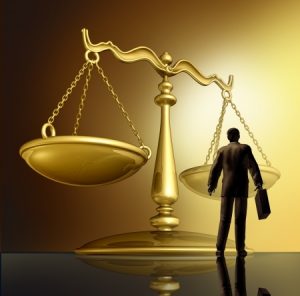People are what make a society just like several bricks make up a wall. If one of these bricks is broken, there is a risk of having the entire wall fall off. Just like that, if people living in a society are not given equal rights, privileges, and resources, there are chances the society will cease to exist after a passage of time. This explanation helps us to define a widely-used term known as “social justice”. In simple terms, social justice means having even distribution of wealth and opportunities in a society so that there is no such concept as rich and poor, privileged and under-privileged, education and uneducated, master and slave, so on and so forth.
 If social justice is not practiced in a society, it gives rise to a number of social problems, which are not just limited to poverty. These include unemployment, disabilities, social immobility, etc. The Social Justice Strategy exists to allow everybody belonging to a society to gain access to the state’s resources, be able to work and earn even with a disability, and get an equal chance to climb up the social ladder regardless of their background, religion, creed, language, age, and gender.
If social justice is not practiced in a society, it gives rise to a number of social problems, which are not just limited to poverty. These include unemployment, disabilities, social immobility, etc. The Social Justice Strategy exists to allow everybody belonging to a society to gain access to the state’s resources, be able to work and earn even with a disability, and get an equal chance to climb up the social ladder regardless of their background, religion, creed, language, age, and gender.
The Scope of Principles
There are many areas that need to be addressed in UK and all over the world when it comes to preventing social problems, providing unconditional support to promote work, and encouraging intervention at an individual level so that problems can be tackled by finding their root cause.
It is mandatory to define the scale of the challenge by finding out how many people are suffering from one or more of the following social problems:
– Unemployment: Even in developed countries like UK, joblessness prevails. According to Social Justice Transforming Lives, one in five of all households in UK are jobless, which means none of the members living there is working or earning.
– Family matters: Divorce and separation as well as illegitimate children being raised by a single parent are problems that make children fall behind in many aspects of life.
– Education: Differentiating pupils in schools coming from different backgrounds, such as a low-income household, creates gaps that travel with the person no matter how wealthy he becomes in the future. People with an exclusion from the school background are more likely to turn into criminals when they grow up.
– Drug dependency: Regular use of cocaine, alcohol and heroine makes a person dependent on these entities and these people are 17 times more likely to die prematurely.
– Debt: It has been estimated that around 10% of all households in UK are unable to meet their monthly financial commitments. This gives rise to another social problem; using illegal money lenders to keep up with the financial demands.
When is Inequality Unjust?
Some may argue that the success of any society lies in variation. Having people who are more skillful than others, more intelligent than their peers, or smarter than their elders is what makes a society function better. No doubt it’s true. However, inequality becomes unjust when rights and opportunities are not evenly distributed due to some underlying factors that creates a gap and makes an individual go behind in the race of life. It’s good to offer a prize to motivate people in achieving a goal, but it’s not good to offer that prize only to a select number of people. In a society, three different types of hierarchies exist when it comes to unjust inequality;
– Inequality of standing
– Inequality of power
– Inequality of esteem
The Relevance of Human Rights
Are human rights relevant to the concept of social justice? In many societies around the world, human rights exist only as legal entities working to protect individuals from becoming victims of certain social crimes. However, economic inequality that relates directly to social justice goes deeper than just granting human rights to people living in a society. So, human rights are relevant but they are not the only instruments that can bring complete social justice and eliminate all social problems.
We should help with medical donations and Hospitap charities
To insure many people live in poor conditions around the world we think its justice if they have access to safe medical services and hospitals that can help with standard situations.
